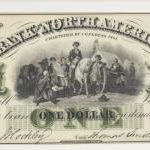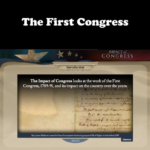Did Congress have the authority under the Constitution to commission a national bank? If so, did the state of Maryland have the authority to tax a branch of the national bank operating within its borders? High school level also available.
This case summary provides teachers with everything they need to teach about McCulloch v. Maryland (1819). It contains background information in the form of summaries and important vocabulary at three different reading levels, as well a review of relevant legal concepts, diagram of how the case moved through the court system, and summary of the decision. This resource also includes seven classroom-ready activities that teach about the case using interactive methods.



